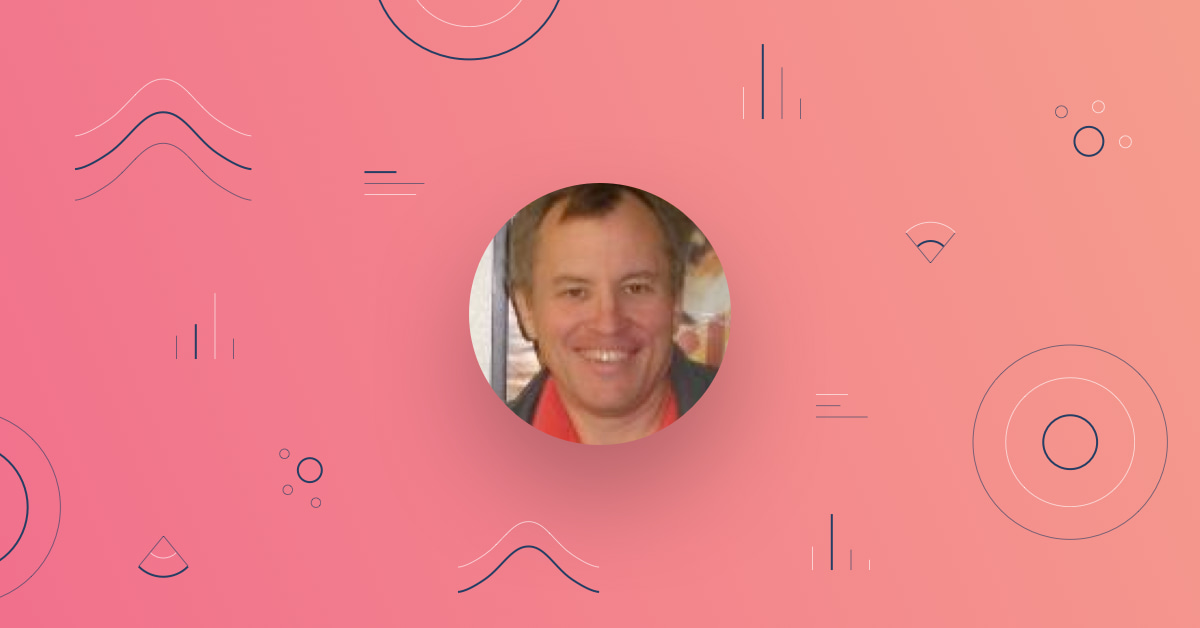

Mark Biegert isn’t your typical data scientist. He’s not a millennial and he doesn’t have an advanced degree in mathematics or computer science. Mark is 62 and an electrical engineer by trade. He’s also refreshingly humble and describes himself as “a pretty boring guy.”
Discovering DataCamp
For 12 years, Mark was an engineering director in charge of optical products for a major telecom company. He managed a team of electrical engineers and optical physicists, which are communities that tend to use Python. In that role, Mark began learning Python on DataCamp to improve his data analysis abilities. When he started to move beyond electrical engineering and optics, he encountered other communities that use R. He returned to DataCamp to learn R, which soon became his go-to language for problem-solving.
The Python, R, and statistics knowledge I gained at DataCamp has been critical to my work.
Mark’s management role required processing large amounts of field failure and manufacturing data. He could have assigned that work to a staff member, but data analytics fascinated him and he happily dove into databases, SQL, and data science. He used this knowledge to show correlations between certain failure modes and weather conditions, part lots, installers, and component manufacturers.
The impact of this knowledge was profound. It helped him improve customer experiences and reduce product failure rates by identifying areas where training and tools were needed. One project involved developing a battery gas gauge: He designed an experiment to characterize the battery performance, analyzed the results, determined the best model given some implementation constraints, and provided a specification to the software team for execution.
I soon found myself more interested in data science than in managing.
The start of a data analyst career path
Mark had been in electronics and optics for 39 years, but by May 2018, he was looking for a change. He decided to set out on his own and start a consulting business. Mark doubled down on his DataCamp training. He worked through the Data Scientist with R career track and started to look for electronics jobs that required data analysis. And he’s been busier and more prolific than ever.
In the early days of his consulting practice, Mark was predominantly focused on electrical engineering work, but over the last year, he’s added in more data analysis work. He’s now doing contract work for a major bed manufacturer, helping them analyze field failure data. This entails setting up test protocols, defining database schemas, analyzing data, and creating dashboards for management to use in decision making—all using skills he learned on DataCamp.
I really like the short lecture and guided exercise format a lot. It works for me.
Learning data analysis with DataCamp
So, why did Mark choose DataCamp in the first place? He actually tried a number of online learning platforms, but DataCamp’s teaching approach suited his personal learning style best. He finds our learn-by-doing approach most effective, which starts by teaching concepts through short videos, followed by practice exercises and hands-on projects to enable learners to solve real-world problems. He also appreciates DataCamp’s instant feedback and the quality of instruction on the platform.
DataCamp has the greatest breadth of course offerings and has maintained a consistently high quality of exposition.
Mark sets aside an hour every evening to devote to DataCamp, and uses the DataCamp mobile app on his bus ride to and from work to reinforce his learning. To date, he’s completed 75 courses and accumulated over 330,000 XP! His initial DataCamp usage was highly targeted toward developing specific skills he needed in his daily work, particularly tidying and graphing data. He then progressed into statistics by taking courses on experiment design and modeling. Recently, he’s been focused on reporting.
Mark’s journey with DataCamp allowed him to build the depth of data science and analytics skills to meet his career goals. Professionals at any stage of their career can do the same. Inspired by Mark’s story? Connect with him on LinkedIn and follow his data adventures on his blog.
Sign up now!
As always, we’re here for you. You can start learning on DataCamp now, or leverage DataCamp for Business to upskill your team in all areas of data science and analytics. Click here to schedule a free demo of our platform.

